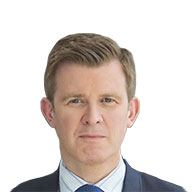An Olympic bronze could make you happier than a silver
Why behavioural economics suggest that our Winter Olympic athletes could be more chuffed with coming third rather than second
Going for bronze?
Here's a fun thing to do as the Winter Olympics come to an end in PyeongChang: watch the medal ceremonies with a keener eye. The gold medalist is likely to be beaming with glee, but compare the expressions of the silver and bronze runners-up. See how many times the athlete in third place looks happier than the one who came second You'd think the degree of delight would be mirrored by the podium position. But that ain't necessarily so and behavioural economics could have an answer.
Research suggests this could be down to what's known as counterfactual thinking. This is where people compare their ultimate objectives with what might have been. It's suggested that silver medalists are likely to compare themselves upwards towards the winner. Bronze medalists, on the other hand, are perhaps more likely to make downward comparisons to people who didn't win anything at all.
Britain's Dom Parsons comes to mind here. He shocked everyone, not least himself, when he grabbed a bronze medal in the men's skeleton at the South Korea games. Look at his podium picture. He's thrilled, as is the ultimate winner. The guy in second? Not so much.
How your thoughts are influenced
Professor Bob Sutton, from Stanford Business School, has written about this. He says: "People's emotional responses to events are influenced by their thoughts about 'what might have been’. So, the silver medallists see themselves as the first loser, while bronze medallists see themselves as the last winner. If you win a silver, it’s very difficult to not think, 'boy, if I had just gone a little faster at the end’. While the bronze-medal winners might think: 'I could have gotten gold if I had gone faster’, but they are more likely to think, 'that was close, I might not have gotten a medal at all’.”
People's emotional responses to events are influenced by their thoughts about 'what might have been’.
Counterfactual thinking is all about considering 'what if?'. It can give insights into our daily lives. We often imagine how things could have been different. If you get fired from your job, you might wonder whether you'd have been far happier if you'd taken a position with a different organisation. In a similar way, a struggling sixth-former might think if only they'd taken a different subject they'd have had a better shot at getting into the university of their choice.
Take work. If you get a three percent pay rise, your reaction is likely to depend on whether you focus on the equivalent of the gold, say a 5% raise, or something closer to no medal at all: a frozen salary. Depending on where your reference points are can make all the difference to your happiness.
When less is more
Of course, there are always going to be silver medalists who are absolutely thrilled to get such a high award and they're absolutely made up that they came second, not third. But it's human nature to compare yourself with those who appear to have done better. But if you learn to compare yourself with someone who didn't do as well, in this case, the bronze medalist who beat the rest of the field to the third podium position, you may well feel almost as though you'd actually got the gold.
This publication has been prepared by ING solely for information purposes irrespective of a particular user's means, financial situation or investment objectives. The information does not constitute investment recommendation, and nor is it investment, legal or tax advice or an offer or solicitation to purchase or sell any financial instrument. Read more
Download
Download article